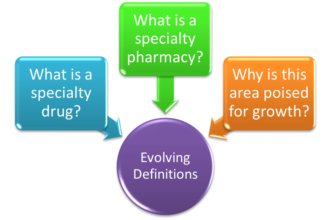The following guest post comes from Steve Grossman, who works to increase funding for the Food and Drug Administration through the FDA Alliance and blogs at FDA Matters:
The following guest post comes from Steve Grossman, who works to increase funding for the Food and Drug Administration through the FDA Alliance and blogs at FDA Matters:
FDA decides whether drugs, biologics and medical devices are safe and effective and can be marketed legally in the United States. The agency analyzes risk-benefit, but never cost. In contrast, public and private insurers, along with physicians and pharmacists, have the responsibility for cost-benefit decisionmaking.
FDA Matters has always felt quite strongly that this was the right way to allocate roles. Safety and efficacy determinations are difficult enough without weighing cost, so keeping a barrier between them makes sense. Two events this past week have left me wondering whether there are certain limited circumstances when FDA should be able to take product cost into consideration.
On September 26, 2011, The Oncology Commission of the British medical journal, Lancet, released a report entitled: “Delivering Affordable Cancer Care in High-Income Countries.” The 40-page report is wide-ranging, but its conclusion straightforward: as cancer care grows more expensive (and it is doing so at a rapid pace), affordability, accessibility and value are issues that need to be confronted aggressively.
Medicare, Medicaid and private payers are undoubtedly looking at this report, hoping to glean insights on cost containment strategies that can mesh with improved cancer care. They may also be looking for support and better rationales for tough decisions they may need to make in the near future.
FDA also has a stake in affordable cancer care. The growing problem of drug shortages in the United States is heavily skewed toward oncology drugs (mostly generic injectable products). Patients suffer, research is delayed, and more expensive drugs are often substituted (or patients do without).
While ingredient shortages and manufacturing problems play a role, there are also economic drivers. In many cases, it is not sufficiently profitable for manufacturers to produce older oncology drugs. FDA cannot hope to improve the shortage situation without considering cost—and may need to find ways to favor less effective or riskier products only because they can be made available at a market-driven price.
FDA also plays a role (however unintentionally) in exacerbating the crisis in affordable cancer care. Oncology is one of the hottest areas at FDA, with a large number of new products added to the market over the last few years. More are coming. Increasingly, they are being priced at about $100,000 per cycle. Some patients may need multiple cycles or multiple expensive drugs, all of which contribute to further cost escalation.
This brings us to the second event that occurred last week. I was asked the seemingly naïve question, what would FDA do if a drug was only 90% as good as the safest and most effective therapy on the market (the standard of care), but would be available for only 10% of the cost? I gave the stock answer: FDA only approves therapies that are as good as or better than the existing standard of care. The cost aspect is irrelevant and would never be considered or even discussed.
But then I thought about the Lancet Oncology Commission report. Wouldn’t patients benefit if FDA had some room to consider standards of care, risk-benefit and comparative cost? It scares me to write this….the whole notion of FDA putting cost on the table seems like an abandonment of principles, as well as fraught with potential misuse. Certainly, FDA should not be rejecting therapies because they would be expensive.
In a sense, there are already two possible exceptions. To demonstrate bio-equivalence, generic drugs must have a bio-availability profile within the range of 80% to 125% of the innovator drug. For potentially expensive new products, there is the possibility of approval based on clinical trials that show the product is “non-inferior” to the best therapy on the market. It is possible that a product could be approved as non-inferior with a 10% margin of error, setting up a “90% as good” paradigm.
But neither of these situations gives FDA explicit permission to say: we are approving a drug, biologic or device that is not quite as effective or safe because it will make care more affordable and accessible. I am not yet an advocate for this….but I think it is one of the possibilities that we need to be discussing.






